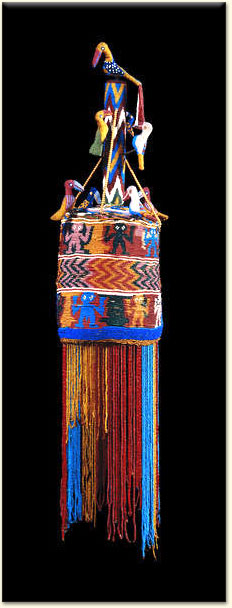John Dalton, English Chemist and Proponder of Modern Atomic Theory of Chemistry
Reading about beliefs this morning:
More on Hameed's "Pakistani Dr" --
"expaining contradictory beliefs" begs the question
AuthorDan Kahan
Posted on DateMonday, December 29, 2014 at 11:34AM
http://www.culturalcognition.net/blog/2014/12/29/more-on-hameeds-pakistani-dr-expaining-contradictory-beliefs.html
I'm pretty obsessed right now w/ trying to comprehend/identify/test the mechanisms that can generate in people's minds coexisting states of belief & nonbelief in evolution or climate change. The paradigm case would be Hameed's Pakistani Dr., who "disbelieves in" evolution "at home" but "believes in" it "at work."Belief systems - my bete noire.
All the explanations that people are inclined to give-- ones involving "compartmentalization & dissonance avoidance," insincerity, "misconstrual," "divided selves" etc-- assume that what's in need of explanation is the holding of contradictory beliefs. I think that's a mistake -- or at least begs the question.
The question is how to individuate the "factual proposition" (or for simplicity, just "fact") that is the object of the subject's "belief" or knowledge.
The standard explanations of the Pakistani Dr all assume that the "fact" is defined exclusively w/ reference to some state of affairs external to or independent of the subject, that is, the individual who "knows" it. The referent for "human evolution" is "the natural history of human beings as described by evolutionary science." So if someone "believes" & "disbelieves" in human evolution, they are manifesting opposed or contradictory intentional states toward the fact of human evolution.
My hunch is that the "fact" that is object of knowledge or belief must in addition be defined in relation to the contribution that knowing or believing it makes to some end or goal of the subject...
I prefer to use "belief" as a proposition in a rational and scientific inquiry, a belief being prone to falsification if the proof arise, and to be struck from the Credo of our inquiry.
Religions, Politics, Social Mores have extensive Credo, creeds, and rituals and observances which are not in the form of propositions, and - hence - are not subject to sturdy and falsification. They are just the way people are, not beliefs.
I also think that scientific propositions tend to a logical atomism, which is a form totally alien from religion and social mores, which are vast carpet of warp and weft over time, from which little except rank heresy is ripped off.
Science will drop phlogisthon like a hot potato, while society will hold dear their racism and let it transform and morph, rather than kill it outright.
I include a picture of John Dalton, for his atomistic approach, which is reflected in the scientific method, by which propositions and theories are propounded and tested.
Other so-called "beliefs" are no subject to such scrutiny, and in my opinion calling such manifestations "beliefs" leads to misunderstandings.
--
--


















No comments:
Post a Comment